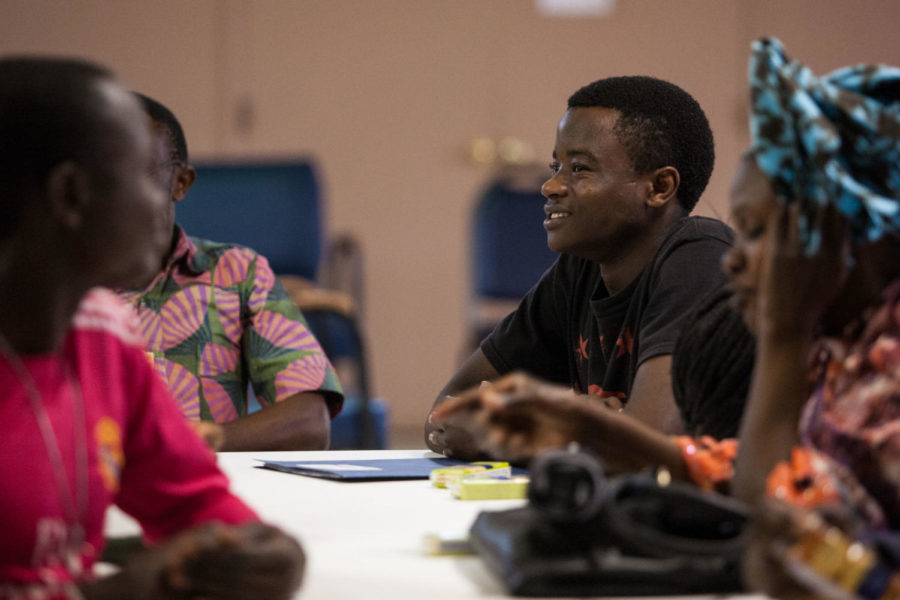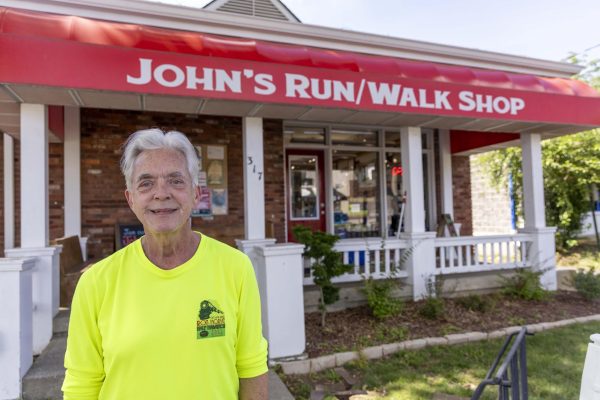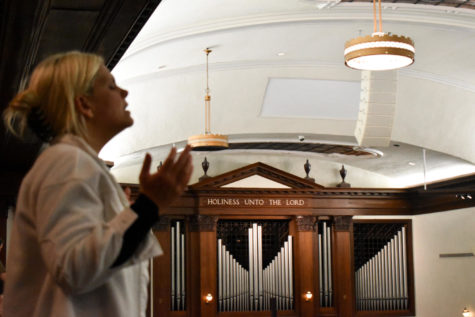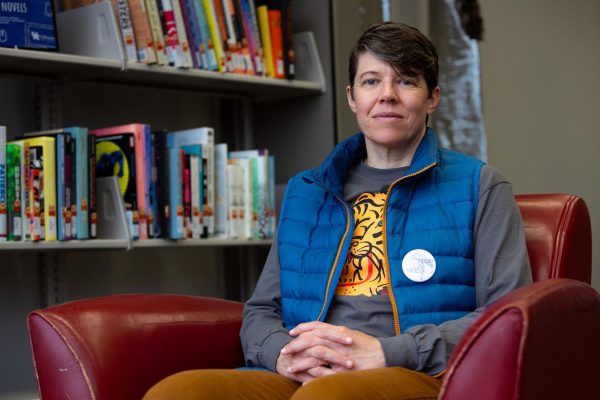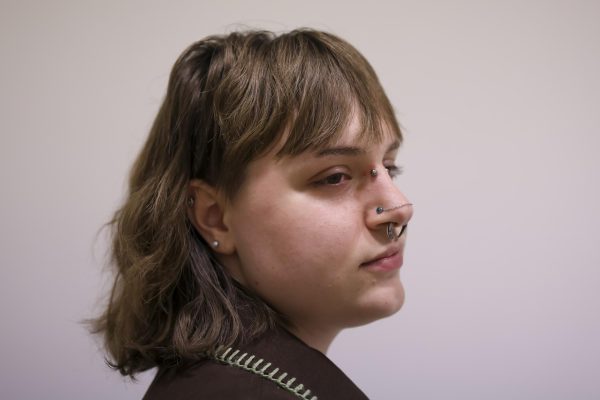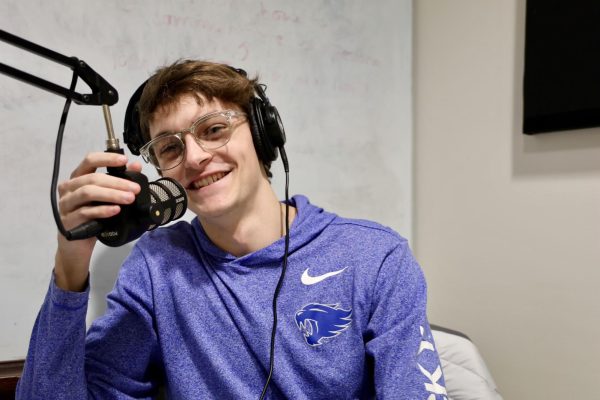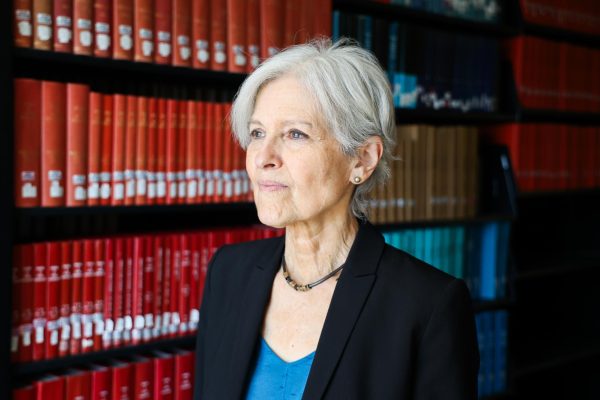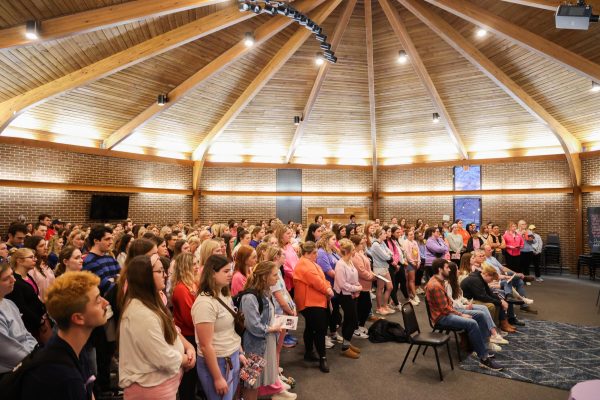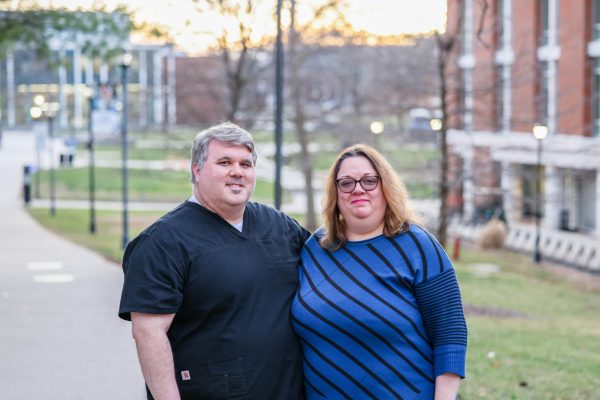Local Congolese community welcomes refugee
April 28, 2016
Eritye Nfitimukiza was an infant when gunfire alerted his mother Kave to Congolese rebels who were about to ravage their village.
She grabbed her son and started running. There was no time for her to look for her husband or mother. When the gunfire begins, Eritye said, you run and you don’t look back.
Eritye’s mother ran for miles until she came to the Ishasha River, the last obstacle between her and a refugee camp in Uganda.
Eritye clung to her as she forged the waist-deep river by herself, leaving all memory of her home and family at the wayside.
Casting her exhaustion aside she reached the bank and began running until she reached the refugee camp. Her son would spend 18 years in that camp before coming to the third largest resettlement community in the U.S. for Congolese refugees: Lexington, KY.
A Child’s Journey:
When he arrived in Lexington in February, Eritye feared for his family who remained in the Kyangwali refugee camp in Uganda.
Though he was grateful to have been selected for resettlement, he felt he was neglecting his responsibility as guardian of his younger brother and sister, and his grandmother, a role he assumed as a teenager.
When he and his mother arrived at Kyangwali, they were reunited with his father Ndabarinze, who had fled when the gunfire began.
When Eritye’s grandmother failed to arrive at the camp, his mother Kave worried that she had been killed that day. After two years in the camp, she took her son and went back to the village to look for her mother, leaving Eritye’s father in Uganda.
Kave found her mother alive and unharmed, but her joy was short lived. Her decision to return would separate her from her son for over 18 years.
Eritye still remembers how the rebels approached the second time.
“The soldiers are rebels that divided themselves into two groups — this one that comes to the outside and this one downside — so when they came (together) they pushed all of you together so they can kill you very well,” Eritye said. “When we started hearing those gunshots, people started running out of their houses; it was a disaster.”
Eritye’s mother was in a different part of town when the gunshots began. This time his grandmother grabbed him and they ran in the direction of the Ishasha River, as Eritye’s mother had done years before.
With the help of their neighbor, Eritye and his grandmother made it across the river to the camp in Uganda. Eritye has not seen his mother since that day — the day his resettlement process began.
A New Life Begins:
The resettlement process for Congolese refugees has one of the longest wait times of any ethnic group, according to Dabney Parker, the co-sponsorship developer and volunteer coordinator of Kentucky Refugee Ministries in Lexington.
Demand to address the influx of Syrian refugees has given them precedent, which is why their process can take a few years, but most Congolese refugees arriving in the U.S. have been waiting more than a decade, Parker said.
Eritye said his 18 years in the refugee camp were like living two different lives. In one life he went to elementary school, played soccer with his friends and loved singing in church.
On the other he had to build a small home for he and his grandmother from and branches. His father remarried and started a new life because his mother never returned. Among it all, violence always seemed to be on the horizon, outside the camp and inside.
His father and stepmother had a boy and a girl, and they lived separately from Eritye and his grandmother.
When the children were about 5 and 6, Eritye’s father and stepmother passed away within a week of each other. He said other refugees in the camp had poisoned them.
Eritye was left to provide for his three remaining family members.
He dropped out of sixth grade to make money working in the fields to buy books and clothes for his younger siblings to be able to go to school. After work he would come home, cook, do laundry and anything else his family needed.
And then the time came when their case was finally called in for interviews. He went with his family to the interviews, but after the orientation Eritye noticed that only his name was being called to go on.
When he made it through the medical examinations he realized his family would not be able to continue with him in the process.
He worried his siblings were too young to support themselves and his grandmother, but she reassured him that his chance to start a new life was well.
Eighteen years culminated into two to three weeks of travel formalities, and then he was on a plane headed for Lexington.
He arrived at the Lexington Bluegrass Airport on Feb. 17, where he met his Kentucky Refugee Ministries caseworker, Tai Punsuchart and a translator.
He said his nervousness in coming increased because of the cold weather that hit him with only a zip up sweatshirt, jeans and whatever was in his backpack to keep him warm. His suitcase was lost on the way and would be coming later.
Eritye said stepping out of the airport and beginning his new life as a free man without the fear of conflict was both exciting and terrifying, but he was ready to face the challenge head on.
Building a New Home:
Eritye was reunited with some of his family, including his aunt, when he came to Lexington. Once families get separated, many will never see each other again, according to KRM Lexington’s immigration attorney Emily Jones.
Eritye is constantly reminded that he may never see his mother again, but he is determined to build a life here in preparation of his family who has yet to come.
Classes and a tutor have improved his English within just weeks of arriving. He hopes those improvements will help him secure a job.
Bosko Cupac, the job developer at KRM, said the language barrier is one of the biggest hurdles a refugee has to face finding employment and becoming self sufficient in the U.S.
“You really get to know the person and that’s probably why I enjoy doing what I’m doing, because it’s not just find a job and place someone,” Cupac said. “I’m trying to match the skill sets and education with a job that I have available. I’m trying to get them to match their career to their desire.”
Cupac said that he sympathizes with the difficulties refugees face when starting over in a new country and trying to become self-sufficient.
His family emigrated from Croatia with the help of KRM’s current Program Leader Dragana Zaimovic. He joined KRM Lexington as a way to give back to the community he feels gave him his foundation in the U.S.
Proficiency in English opens up many doors for his clients, but he is able to find jobs for most of the refugees because of the relationships KRM has built with large companies like Amazon.
According to Irma Kocer, the Self Sufficiency Coordinator at KRM, refugees receive one flat supplement of $925 from the government, and then KRM provides assistance for about 90 days (and more after that if the resettlement process has been a challenge).
They are also eligible for government programs like KTAP and SNAP, and have the same benefits in this country as any other U.S. citizen, as they work their way towards getting a Green Card after the first year, and becoming citizens soon after.
“Refugee status is the hardest way to get into the country, and it takes the longest. Patience and courage and faith on their part that something is going to happen is most important,” Parker said. “Refugees are some of the most resilient and courageous people that I’ve ever met. They’ve left a lot behind—family, friends, culture, everything—and they have to start all over.”
Jones said refugees must prove their need for resettlement to be accepted through the vetting process. This sometimes means revealing scars and retelling traumatic stories.
In addition, they must provide documents and affidavits, which are written accounts from multiple sources, that confirm the details of the story, such as what town they were in, which members of their family are still alive or medical records showing physical or psychological harm.
For Eritye this meant retelling the story of losing his mother, father and stepmother many times to immigration workers who would then question his neighbors and other refugees in the camp who might have fled from the same town.
After their interviews and orientation, the refugees must also have medical screenings to prevent the spread of disease and are vetted for any criminal behavior. If they fail any part of the process, the clients must start from the beginning again.
Eritye said these medical screenings saved his life because he believes he was poisoned shortly before leaving for America, possibly by the same people he believes murdered his father and stepmother. He received medical treatment for the sickness and was able to recover.
KRM’s role in the resettlement process is helping refugees become self-sufficient once they arrive in the U.S.
They provide ESL and cultural integration classes, job development assistance, financial management assistance and even legal assistance if they have family still in refugee camps who need help coming over.
Eritye has kept up contact with his family in Uganda, and to his joy and relief he said their case is moving along again. He hopes they will be able to come here within the year.
Having a personal connection in the state helps families’ chances of becoming self-sufficient. Eritye hopes enrolling in school at such a young age will help his siblings pick up the language.
While Eritye is working to become self-sufficient, he still loves to play sports with a group of guys from KRM on Fridays. He still loves to sing in church and looks forward to the day when he will bring his family here to Lexington.
He has forged many rivers to get here, and though Lexington is nothing like any environment he has ever lived in, he says he is grateful to have finally found his place of refuge.









































































































































